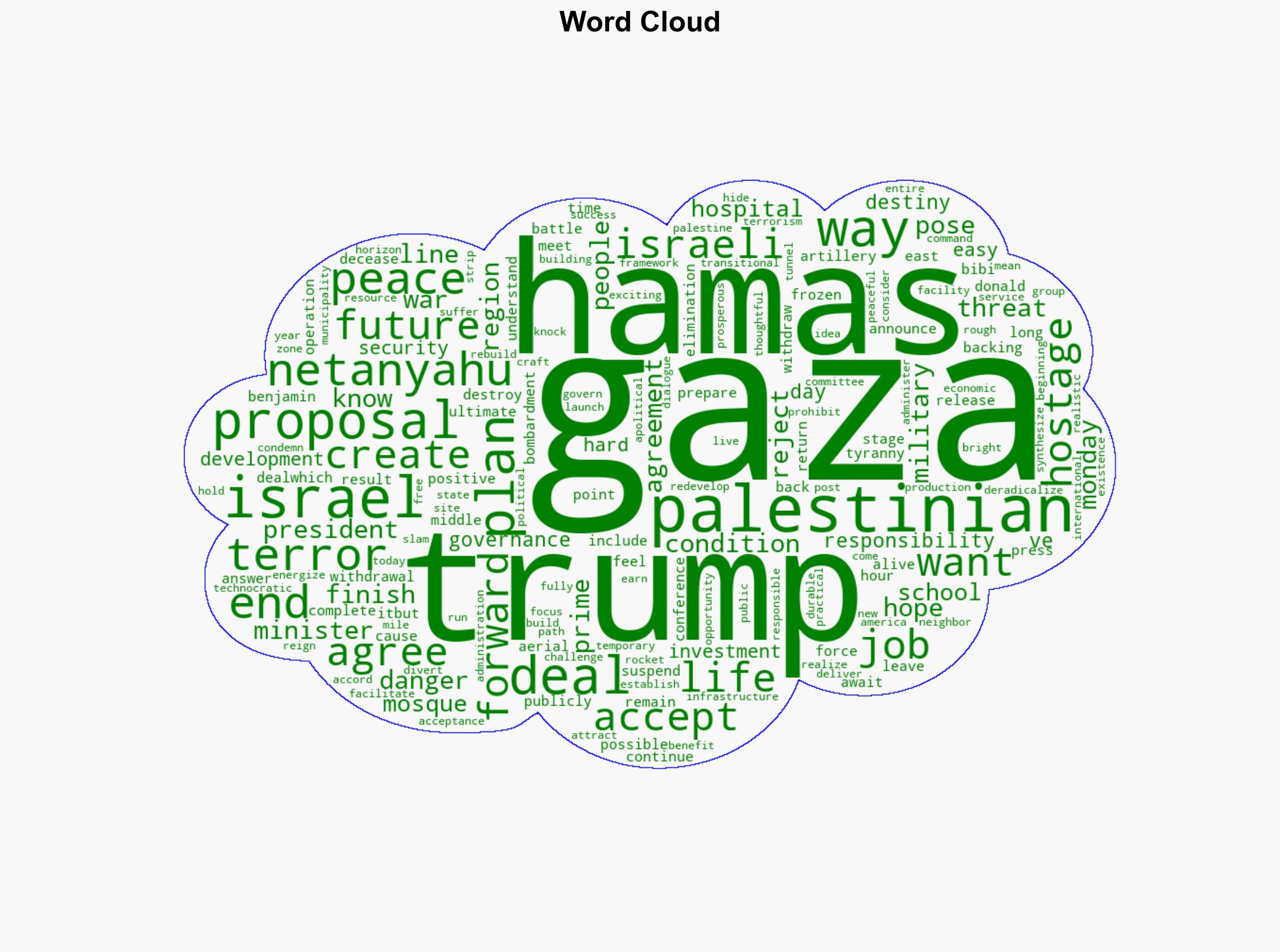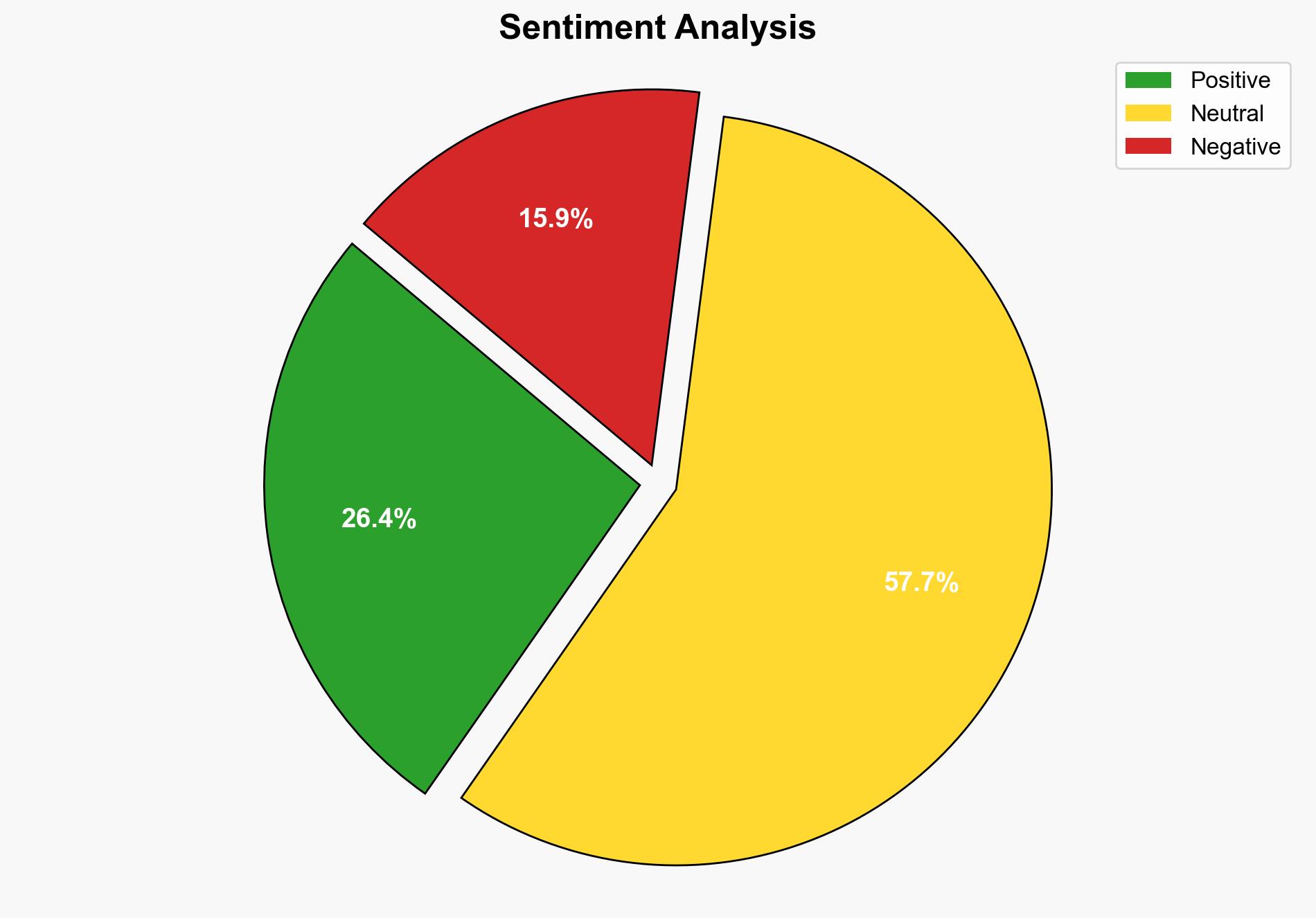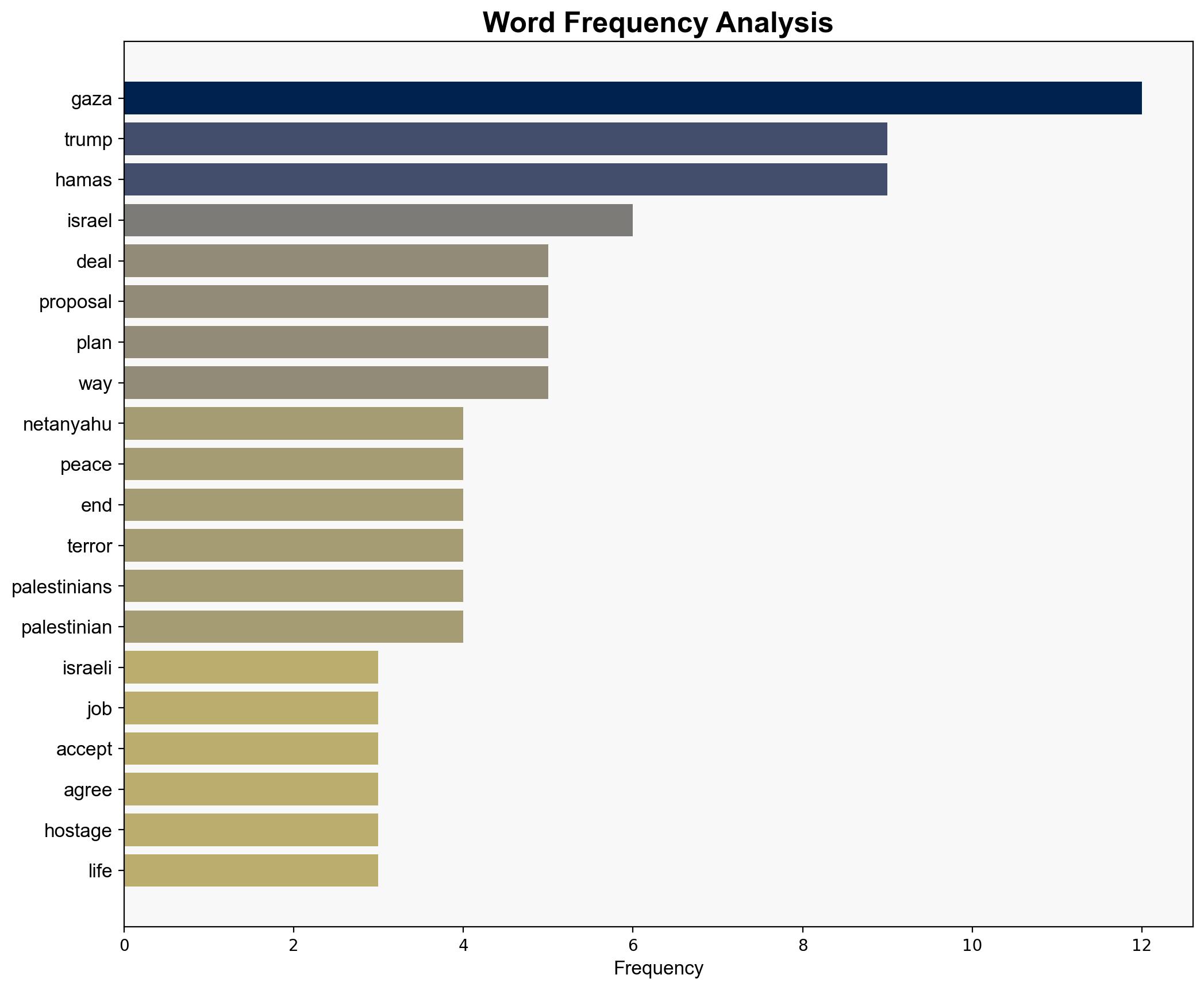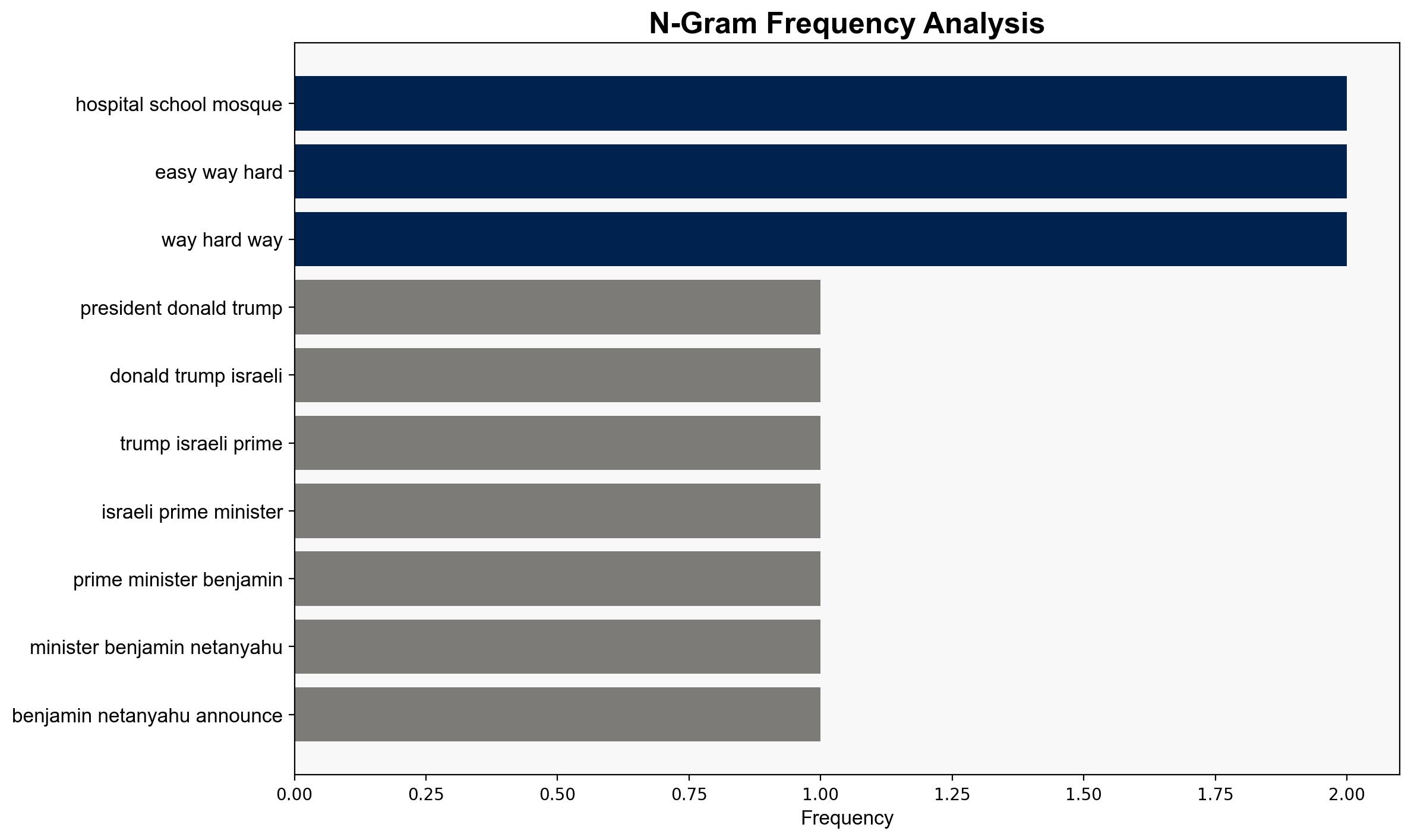Trump Announces Terms of Israel-Palestine Peace Deal Dependent On Hamas Acceptance – Daily Signal
Published on: 2025-09-29
Intelligence Report: Trump Announces Terms of Israel-Palestine Peace Deal Dependent On Hamas Acceptance – Daily Signal
1. BLUF (Bottom Line Up Front)
The most supported hypothesis is that the proposed peace deal is a strategic maneuver to pressure Hamas into a more conciliatory stance, leveraging international and regional support to isolate Hamas if it rejects the deal. Confidence level: Moderate. Recommended action: Monitor Hamas’s response and regional reactions closely, while preparing contingency plans for potential escalation or diplomatic fallout.
2. Competing Hypotheses
1. **Hypothesis A**: The peace deal is a genuine attempt to resolve the Israel-Palestine conflict by offering Hamas a viable path to peace and development, contingent on their acceptance and renunciation of violence.
– **Supporting Evidence**: The deal includes economic development plans for Gaza, a transitional governance structure, and international investment proposals, which suggest a comprehensive approach to peace and stability.
2. **Hypothesis B**: The peace deal is primarily a strategic tool to isolate Hamas and justify further military action if they reject the terms, thereby consolidating Israeli security and territorial objectives.
– **Supporting Evidence**: The emphasis on Hamas’s acceptance, coupled with the threat of military action if rejected, indicates a potential setup for legitimizing future Israeli operations against Hamas.
3. Key Assumptions and Red Flags
– **Assumptions**:
– The deal assumes Hamas is willing to negotiate and prioritize economic development over its ideological goals.
– It presumes international stakeholders will support and enforce the deal’s terms.
– **Red Flags**:
– Lack of explicit details on enforcement mechanisms if Hamas accepts the deal.
– Potential bias in framing Hamas as the sole obstacle to peace, ignoring broader geopolitical dynamics.
4. Implications and Strategic Risks
– **Implications**: Successful acceptance could lead to a significant shift in regional dynamics, reducing tensions and fostering economic growth in Gaza. Rejection could escalate military conflicts, increase regional instability, and strain international relations.
– **Strategic Risks**:
– Economic: Failure to secure international investment could undermine the deal’s viability.
– Geopolitical: Rejection by Hamas could lead to increased support from Iran or other adversarial states, complicating regional alliances.
– Psychological: Public perception of the deal as coercive may fuel further radicalization within Gaza.
5. Recommendations and Outlook
- Engage with regional allies to ensure unified support for the deal and prepare diplomatic channels for potential fallout.
- Develop contingency plans for humanitarian aid and civilian protection in Gaza in case of military escalation.
- Scenario Projections:
– **Best Case**: Hamas accepts the deal, leading to a phased peace process and economic revitalization of Gaza.
– **Worst Case**: Rejection leads to intensified conflict, regional destabilization, and increased international tensions.
– **Most Likely**: Initial rejection by Hamas, followed by international diplomatic efforts to bring them back to negotiations.
6. Key Individuals and Entities
– Donald Trump
– Benjamin Netanyahu
– Hamas leadership
7. Thematic Tags
national security threats, counter-terrorism, regional focus, geopolitical strategy





